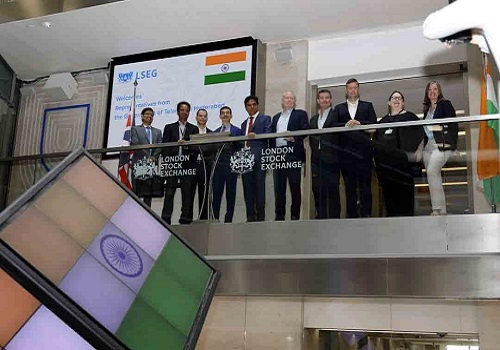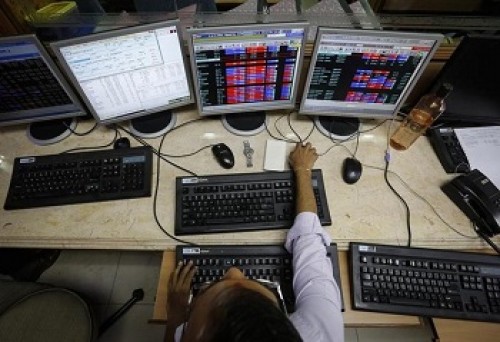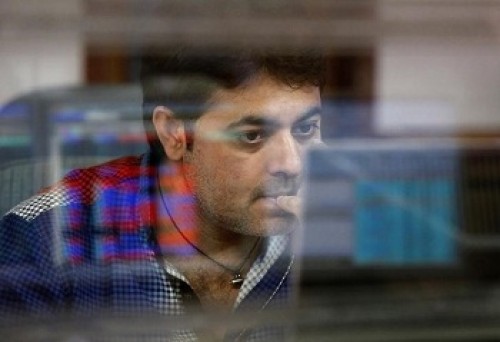Late buying helps markets to end near intraday highs
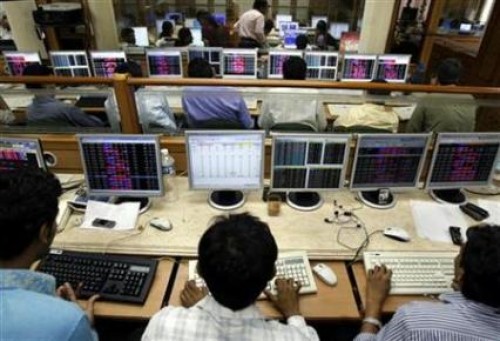
Follow us Now on Telegram ! Get daily 10 - 12 important updates on Business, Finance and Investment. Join our Telegram Channel
Late buying helped Indian equity benchmarks to end near intraday high points with front line gauges recapturing their crucial 52,300 (Sensex) and 15,800 (Nifty) levels as traders opted to buy fundamentally strong but beaten down stocks after three days of continues drubbing. Markets made a pessimistic start on concern over continued FIIs selling. In June, FPIs sold equity worth Rs 50,145 crore through the stock market, taking the total FPI selling in CY 22 to Rs 2,23,944 crore. Some cautiousness also came in with a private report that about 10 states in India have detected a new sub-variant of Omicron BA.2.75, which may be alarming in nature. But, soon markets started paring losses as traders found some solace with Finance Minister Nirmala Sitharaman’s statement that GST collections in June witnessed a 56 per cent year-on-year rise to over Rs 1.44 lakh crore, as she exhorted tax officers to ensure the system is so transparent that even an iota of discretion is not there. The gross GST collection in June is the second-highest collection after April when it was about Rs 1.68 lakh crore.
Furthermore, intense buying in last leg of trade mainly helped markets to not only enter into green terrain but end near intraday high levels as traders got support with report that India's macroeconomic fundamentals are strong to deal with global challenges and the central government is committed to stick to the fiscal deficit target of 6.4 per cent of the GDP for the current fiscal. The government is taking steps to deal with the spiralling crude oil prices in the international market. Traders also got relief, as the commerce ministry is working to release the new five-year foreign trade policy (FTP) before September this year and Districts as Export Hubs scheme would be part of that document, which aims at promoting exports and job creation. Traders remain energized as India's foreign exchange reserves rose by $2.734 billion to $593.323 billion during the week that ended on June 24. According to the RBI's data, India's foreign currency assets, which are the biggest component of the forex reserves, rose $2.334 billion to $529.216 billion during the said week.
Firm opening in European counters too aided sentiments with all the European markets are trading in green as bargain hunters stepped in after another week of declines, even as economic growth concerns continued to limit appetite for riskier assets. However, Asian markets ended mostly lower, after Indonesia's consumer prices increased at a faster than expected rate in June. The data from statistics bureau showed that the consumer price index increased 4.35 percent year-over-year in June, following a 3.55 percent rise in May. Street had expected inflation to accelerate to 4.17 percent. Core inflation was 2.63 percent in June, while street had forecast 2.72 percent.
Back home, asserting that Indian currency has performed relatively better than others against dollar, Finance Minister Nirmala Sitharaman said the government is watchful and mindful of the impact of falling rupee on the country's imports. On the sectoral front, power stocks remained in focus as total outstanding dues owed by electricity distribution companies (discoms) to power producers rose by 4 per cent year-on-year to Rs 1,32,432 crore in June 2022. Also, stocks related to steel industry remained in focused, as in line with the government's COP26 commitments, the Ministry of Steel has asked the stakeholders to develop a time-bound action plan to lower emissions in the steel industry.
Finally, the BSE Sensex rose 326.84 points or 0.62% to 53,234.77 and the CNX Nifty was up by 83.30 points or 0.53% to 15,835.35.
The BSE Sensex touched high and low of 53,301.99 and 52,674.81, respectively. There were 24 stocks advancing against 6 stocks declining on the index.
The broader indices ended in green; the BSE Mid cap index gained 0.82%, while Small cap index up by 0.59%.
The top gaining sectoral indices on the BSE were FMCG up by 2.49%, Bankex up by 1.08%, Capital Goods up by 0.97%, Consumer Durables up by 0.82% and Industrials was up by 0.74%, while Metal down by 1.49%, Energy down by 0.50%, Oil & Gas down by 0.46%, IT down by 0.42% and TECK down by 0.21% were the top losing indices on BSE.
The top gainers on the Sensex were Hindustan Unilever up by 4.03%, Indusind Bank up by 2.95%, ITC up by 2.62%, ICICI Bank up by 2.25% and Power Grid up by 2.15%. On the flip side, TCS down by 2.46%, Tata Steel down by 2.15%, Mahindra & Mahindra down by 1.56%, Dr. Reddy's Lab down by 1.12% and Tech Mahindra down by 1.01% were the top losers.
Meanwhile, the portal PRAAPTI (Payment Ratification And Analysis in Power procurement for bringing Transparency in Invoicing of generators) has showed that total outstanding dues owed by electricity distribution companies (discoms) to power producers rose by 4 per cent year-on-year (Y-o-Y) to Rs 1,32,432 crore in June 2022 as compared to Rs 1,27,306 crore in June 2021. On a sequential basis, total dues in June increased from Rs 1,30,139 crore in May 2022. The PRAAPTI portal was launched in May 2018 to bring transparency in power purchase transactions between generators and discoms.
In June 2022, the total overdue amount, which was not cleared even after 45 days of grace period offered by generators, stood at Rs 1,15,128 crore as against Rs 1,04,095 crore in the same month a year ago. The overdue amount stood at Rs 1,07,636 crore in May 2022. Power producers give 45 days to discoms to clear bills for electricity supply. After that, outstanding dues become overdue and generators charge penal interest on that in most cases.
To give relief to power generation companies (gencos), the Centre enforced a payment security mechanism from August 1, 2019. Under this mechanism, discoms are required to open letters of credit for getting power supply. The Centre had also given some breathers to discoms for paying dues to gencos in view of the COVID-19-induced lockdown. The government had also waived penal charges for the late payment of dues. In May 2020, the government had announced a Rs 90,000-crore liquidity infusion for discoms under which these utilities got loans at economical rates from Power Finance Corporation (PFC) and REC. This was a government initiative to help gencos remain afloat.
The CNX Nifty traded in a range of 15,661.80 and 15,852.35. There were 36 stocks advancing against 14 stocks declining on the index.
The top gainers on Nifty were Hindustan Unilever up by 4.07%, Britannia Industries up by 3.24%, Indusind Bank up by 3.07%, ITC up by 2.66% and ICICI Bank up by 2.30%. On the flip side, JSW Steel down by 4.72%, ONGC down by 3.85%, TCS down by 2.41%, Tata Steel down by 2.10% and Cipla down by 1.96% were the top losers.
European markets were trading higher; UK’s FTSE 100 surged 77.66 points or 1.07% to 7,246.31, France’s CAC increased 60.63 points or 1.02% to 5,991.69 and Germany’s DAX was up by 58.07 points or 0.45% to 12,871.10.
Asian markets ended mostly lower on Monday amid signs of new waves of infections in the second largest economy, while a private report stating that many major economies will enter recessions over the next 12 months. Meanwhile, US stock market is closed today for the Independence Day holiday. Soft US data helped raise expectations that the Fed might opt for a less aggressive pace of interest rate hikes in the months ahead. Data showed US manufacturing activity slowed more than expected in June, with a measure of new orders contracting for the first time in two years, while construction spending unexpectedly dipped in May. However, Japanese shares gained by utility companies as Japan continues to deal with an unprecedented heatwave heading into July.
Above views are of the author and not of the website kindly read disclaimer
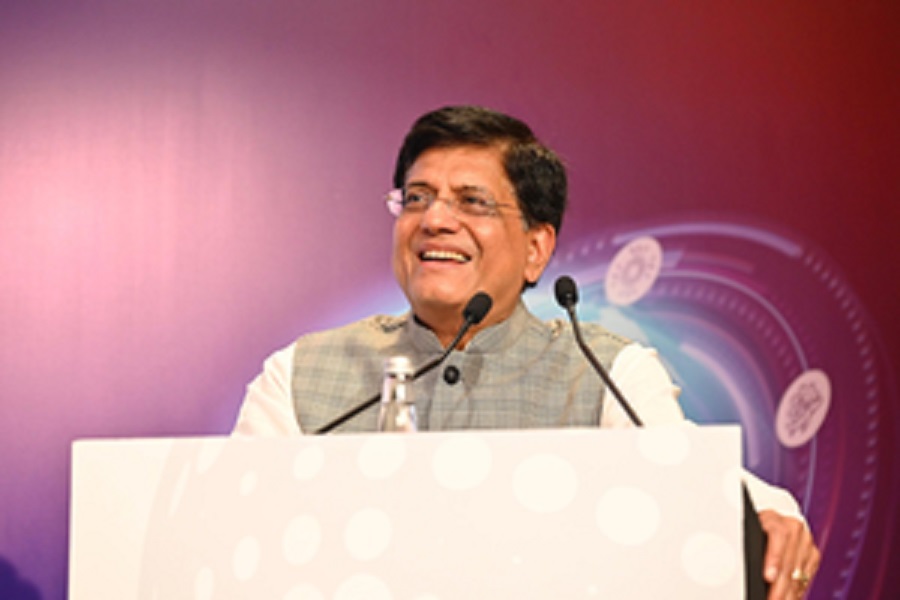








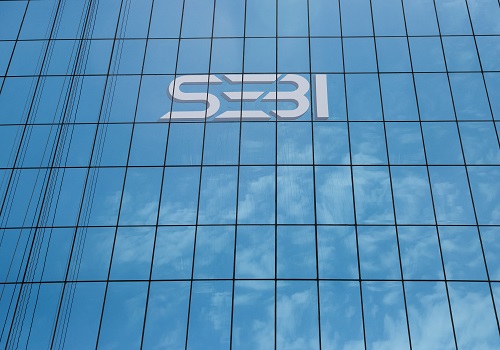
Tag News

Weekly Market Analysis : Markets strengthened recovery and gained nearly 2% in the passing w...








